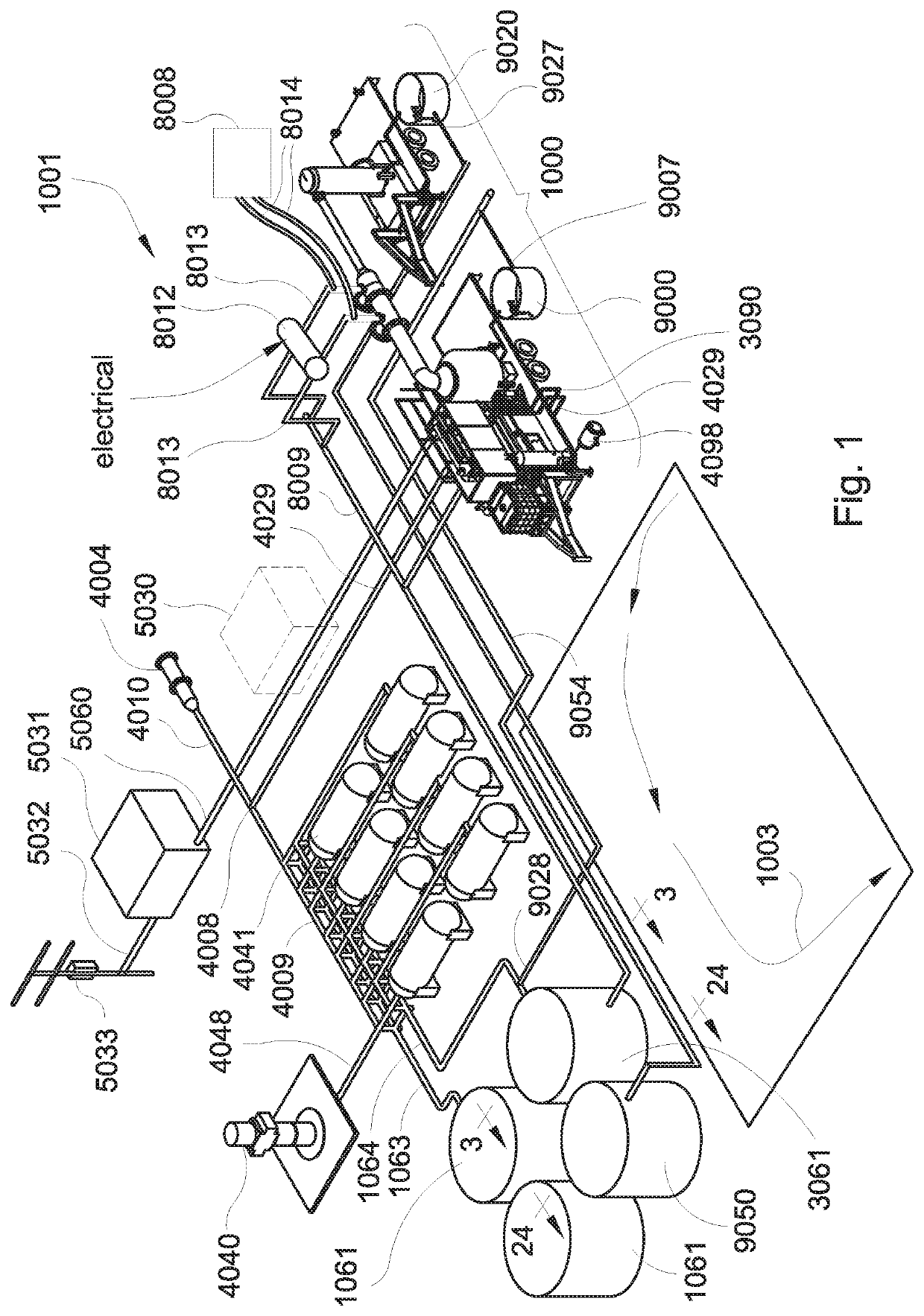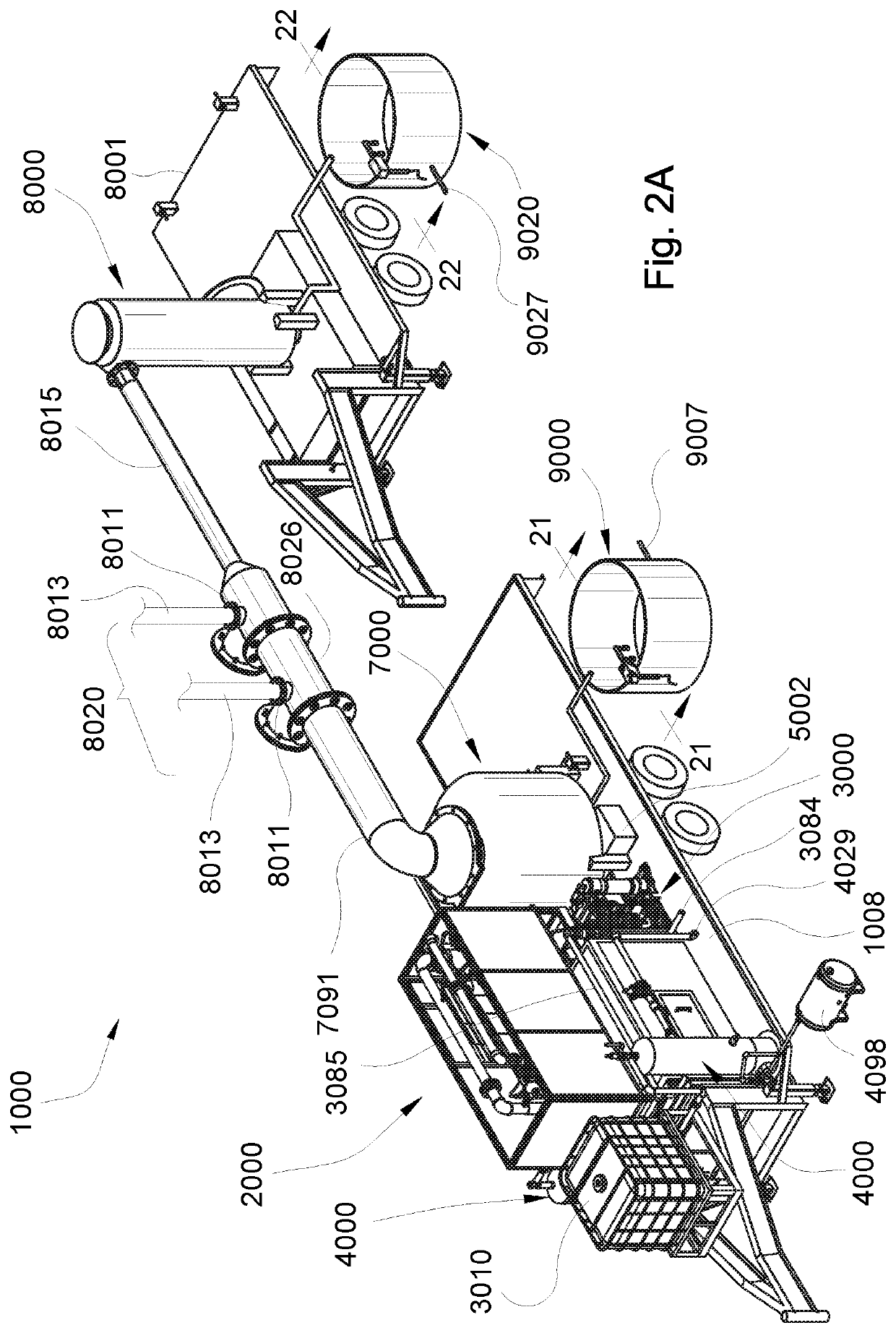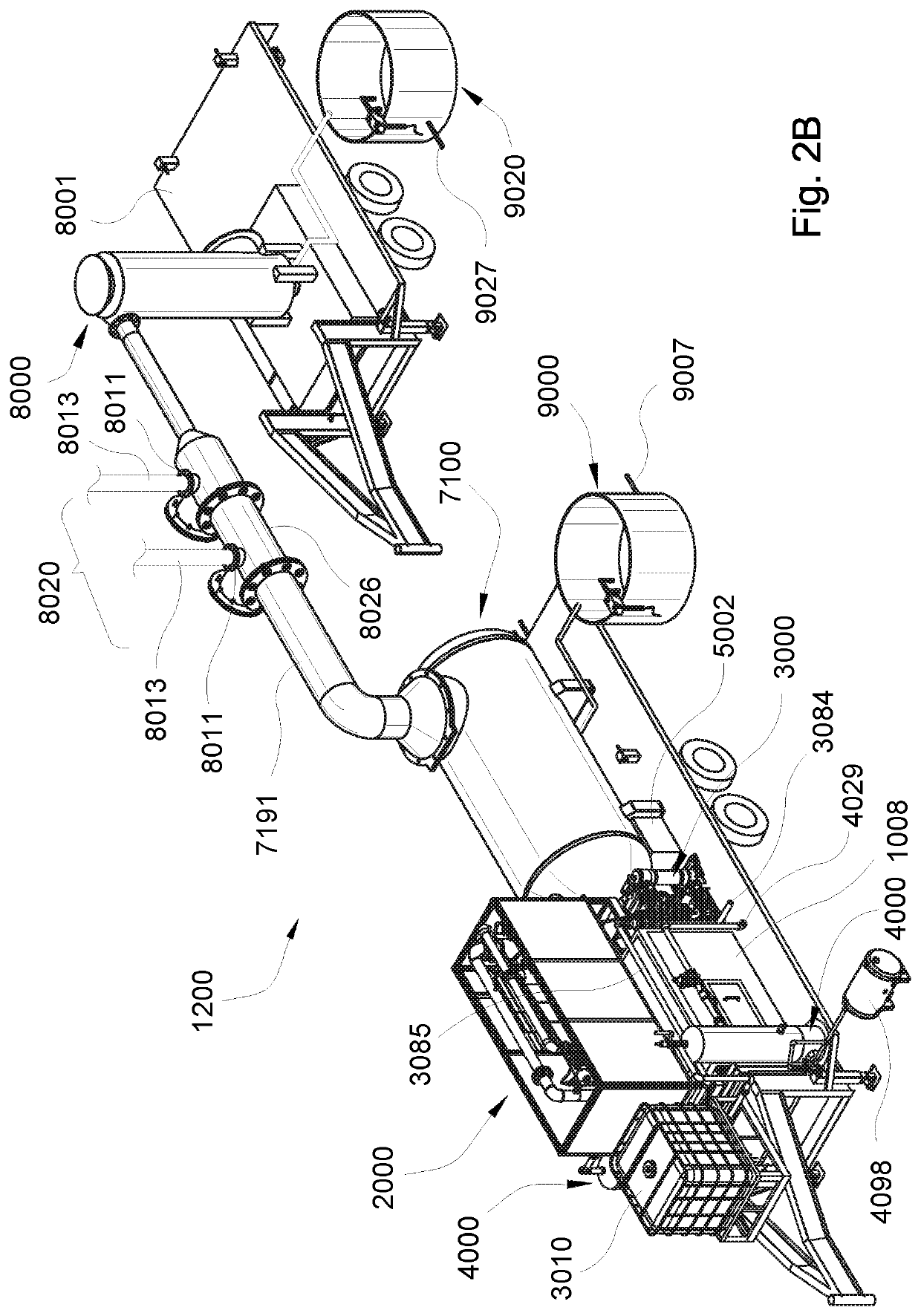Method and apparatus for treating waste water
a technology of waste water and treatment methods, applied in the direction of contaminated groundwater/leachate treatment, vortex flow apparatus, filtration, etc., can solve the problems of high cost of sacrificial electrodes, high cost of transportation of produced water, and large amount of water injected in the hydrofracturing process, and achieves low cost, low maintenance, and safe
- Summary
- Abstract
- Description
- Claims
- Application Information
AI Technical Summary
Benefits of technology
Problems solved by technology
Method used
Image
Examples
examples
[0357]Order and Timing of Sequence
[0358]Starting up the system and maintaining a burn proved problematic or impossible for reasons then unknown. Through many months of experimentation, it was discovered that several factors played a part, and the solution to the problem relied on addressing three overlapping factors in the timing and sequence of start-up events.
[0359]Multiple gas pressure drops resulted in an inconsistent delivery flow rate of gas that resulted in inability to start the system or automatic shut-down of the system shortly after start. If the fluid pressure was too high, the fluid would spray rather than cascade in the burner. If the fluid pressure was too low, however, there was not enough flow rate of fluid to prevent the burner from overheating. Depending on the type of fluid pump employed, it was discovered that water pressure of about 20 psig to about 50 psig (138-345 kPa), and more preferably, fluid pressure of about 30 psig to about 40 psig (207-276 kPa) is pre...
PUM
 Login to View More
Login to View More Abstract
Description
Claims
Application Information
 Login to View More
Login to View More - R&D
- Intellectual Property
- Life Sciences
- Materials
- Tech Scout
- Unparalleled Data Quality
- Higher Quality Content
- 60% Fewer Hallucinations
Browse by: Latest US Patents, China's latest patents, Technical Efficacy Thesaurus, Application Domain, Technology Topic, Popular Technical Reports.
© 2025 PatSnap. All rights reserved.Legal|Privacy policy|Modern Slavery Act Transparency Statement|Sitemap|About US| Contact US: help@patsnap.com



